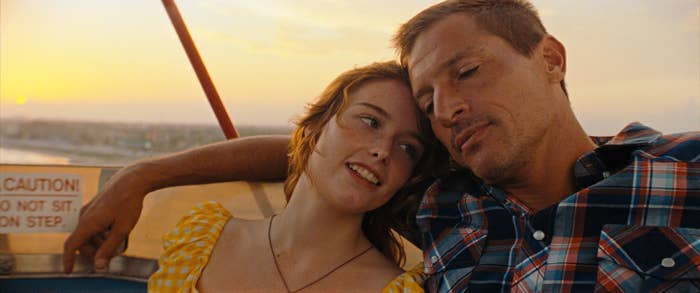
Red Rocket
It’s probably just me, but lately it feels like storytelling has been taken over by Marvel universes and absurd streaming-bait about feline subcultures and hetero masochism. I miss quieter movies with their slow-build character studies. Watching director Sean Baker’s Red Rocket, a portrait of fictional aging porn actor Mikey Saber (Simon Rex), was a reminder of how great those can be.
Baker wanted to capture the energy of “suitcase pimps,” porn impresarios he met while researching the adult industry for his 2012 film Starlet. And he found the perfect vehicle in Rex, a former model, MTV VJ, and white rapper known as Dirt Nasty who’s spent a lifetime around deluded LA actors, to masterfully bring the archetype to life.
In the film, Mikey returns to his small Texas town, which he’d left after convincing girlfriend Lexi (Bree Elrod) to move to LA and become a porn star with him. Now his estranged wife, she’s back in town, staying with her mom and stuck in a dead-end life.
Mikey is a compelling presence from the moment he appears onscreen, begging Lexi and her mom Lil (Brenda Deiss) to let him crash with them while he gets back on his feet. Soon he’s resettling into his old life, quickly finding his lane as a weed dealer, and we get snippets of his backstory as he reconnects with locals. As his moods shift, from whiny boy to daydreaming pothead and then to entitled harebrained schemer — and around again — the film really gives a sense of how circular his life is.
Without shying away from the darkness, the script finds the comedy of how some men exist in a kind of perpetual nowness, parasitically living off everyone around them, especially women — even, eventually, and queasily, a 17-year-old named Strawberry (Suzanna Son).
For all the acclaim about Baker’s ability to capture outsider class and gender perspectives, I find that the least convincing and most gimmicky aspect of his work — especially in 2015’s Tangerine. But he’s finally found a perfect muse in Mikey, and this memorable portrait of the amoral ruthlessness of a small-town con artist is some of his best work yet. —Alessa Dominguez
Where to watch: In theaters now
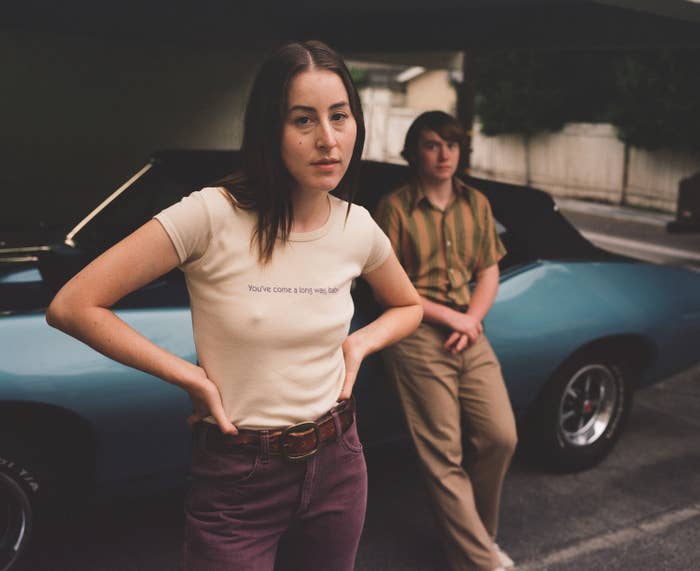
Paul Thomas Anderson’s newest film, Licorice Pizza, is a delightful coming-of-age romp that could certainly be called a rom-com if PTA made rom-coms. Set in 1970s Encino, the film stars Philip Seymour Hoffman’s son Cooper as Gary Valentine, a fast-talking 15-year-old child star who is constantly reinventing himself to make money and be the kind of man twentysomething Alana (Alana Haim) would want to date. The will-they-won’t-they serves as the spine of this story, but this charming film is really a love letter to the Valley, packed with a cast of offbeat characters (keep an eye out for a cameo from Leonardo DiCaprio’s dad) that are as memorable as those found in PTA’s other Golden Age valley epic, Boogie Nights. Bradley Cooper is hilarious as Jon Peters, hairstylist/producer/boyfriend of Barbra Streisand, and Sean Penn is spot-on as a washed-up William Holden. (Along with much critical praise, the film is also garnering controversy for the nature of its central relationship and how Anderson handled racism in the scenes regarding a particular Valley restaurant.) This film — which is as sprawling as the Valley it tries to capture — will command a second (and third) watch. —Karolina Waclawiak
Where to watch: Now playing in New York, Los Angeles, and Austin. Wide release on Christmas.
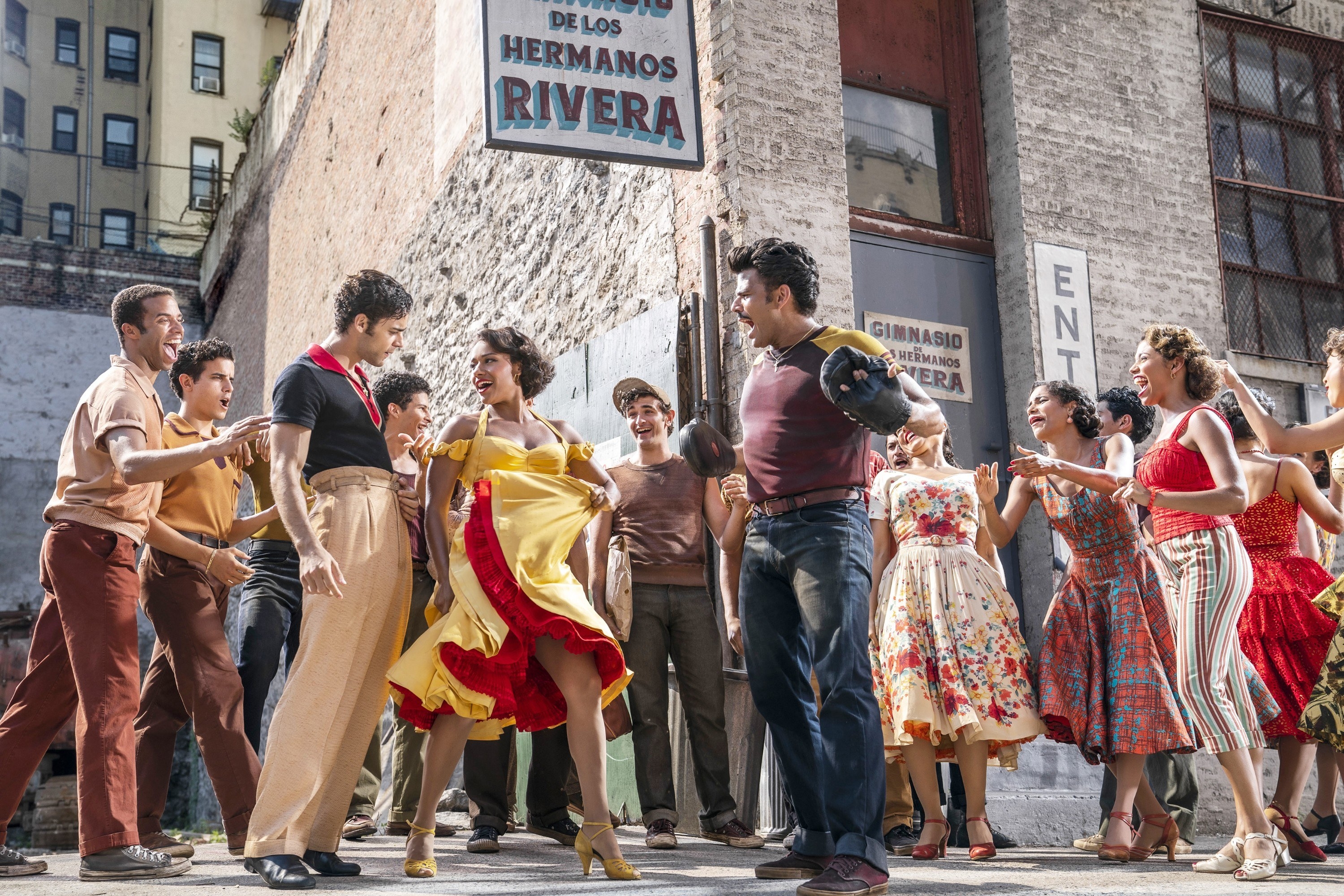
West Side Story
I’m torn because there have been convincing arguments about why West Side Story isn’t worth reviving, given its racist origin story, but I did really enjoy this film adaptation of the 1957 musical and 1961 movie. Director Steven Spielberg and screenwriter Tony Kushner rehabilitate some of the original’s worst tendencies with renewed attention to setting and history. Robert Moses and his “slum clearance” projects loom over the production; when the Sharks and the Jets fight in the beginning of the movie, we see blood. Latinx folks play the Puerto Rican parts, undoing the brownface travesty of the original movie. Ultimately, though, it’s the performances that won me over: Ariana Debose is electrifying as Anita, David Alvarez is hot as Bernardo, and Mike Faist weirdly moving as Riff. And the presence of 90-year-old Rita Moreno, in a role written specifically for her, is especially heartening. Yes, the plot is still kind of risible, but I left the theater teary-eyed. —Tomi Obaro
Where to watch: In theaters now
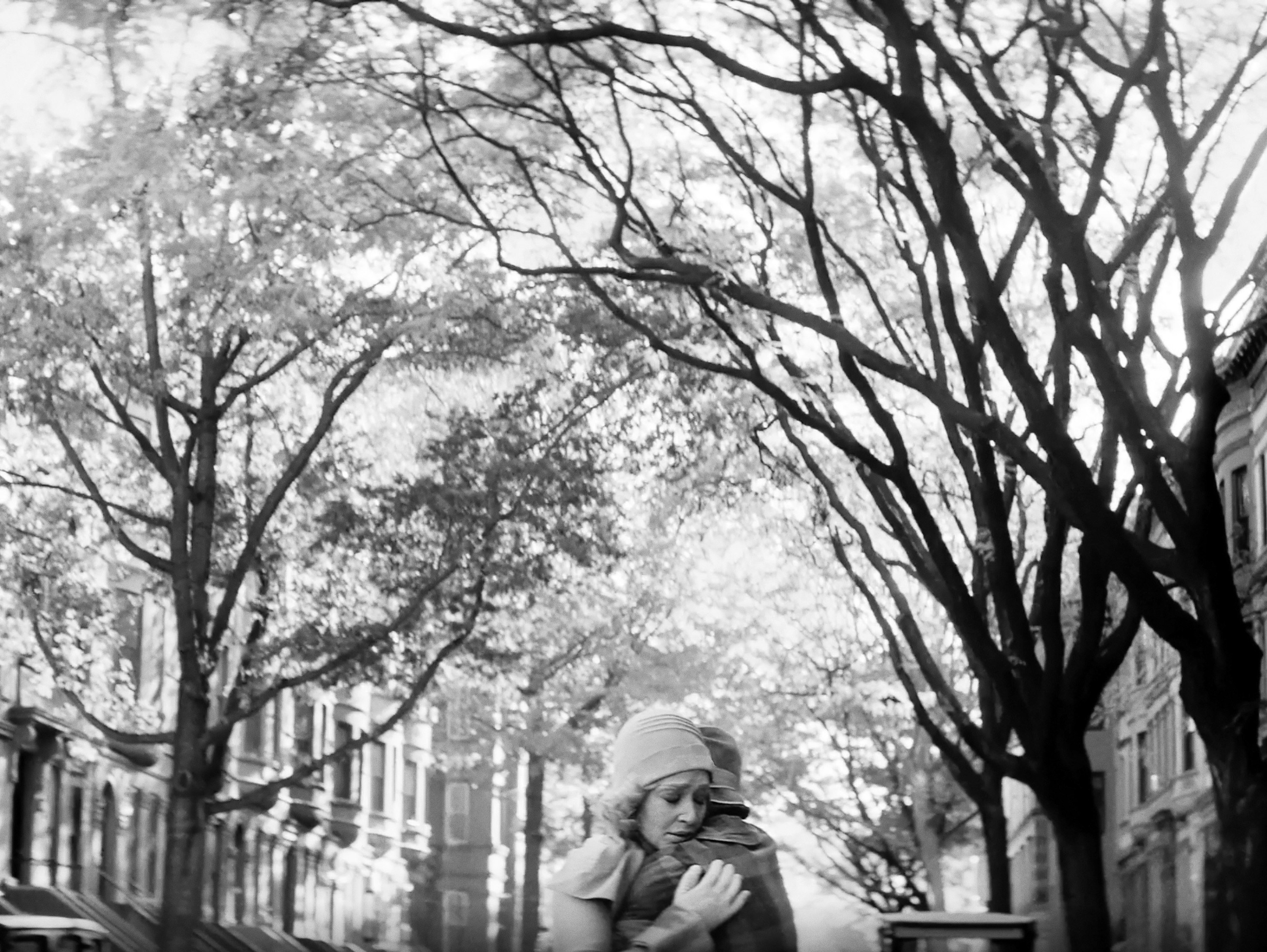
Passing
I was so amped to see Passing, starring Tessa Thompson and Ruth Negga, that in the weeks leading up to the film’s premiere in November, I decided to read the book. Author Nella Larsen’s source material was an excellent primer for actor-turned-writer/director Rebecca Hall’s film, set mostly during the Harlem Renaissance of the 1920s and ’30s, gorgeously captured in black and white.
The story focuses primarily on Irene and Clare, played respectively by Thompson and Negga. The women haven’t spoken to one another since they were children, but one hot summer day they unexpectedly reunite in the tea room of a hotel, taking refuge from the sun. What’s immediately clear from the outset is that the women have chosen two wildly different paths for their lives. While both characters are Black women with fair skin, Clare has decided to live her life passing as a white woman.
Passing, like the novel it shares a name with, is layered. Though you may be expecting a simple story about the dangers of passing for another race, the film allows the audience to consider other questions beyond surface-level observations. Instead of condemning Clare’s choice to live as a white woman, the film raises questions around why someone might choose a life of exile from their people. Meanwhile, Irene lives a charmed life in Harlem, and the audience experiences the story through her perspective. She lives as a Black woman but has passed from time to time herself in situations one may deem harmless or inconsequential — this may not make her and Clare one and the same, but the parallels add complexity to her point of view. Irene finds fault with Clare's decision because of its inherent danger, but the ease with which Irene herself has chosen to selectively pass in her own life demonstrates how seductive, and limiting, that choice can be.
The film isn’t only about race and its contradictions. It’s also about class and community, and the stifling boxes we have created for ourselves. Passing is one of the must-see films of 2021, one that will stay in your mind well after the credits have begun to roll. —Michael Blackmon
Where to watch: Netflix
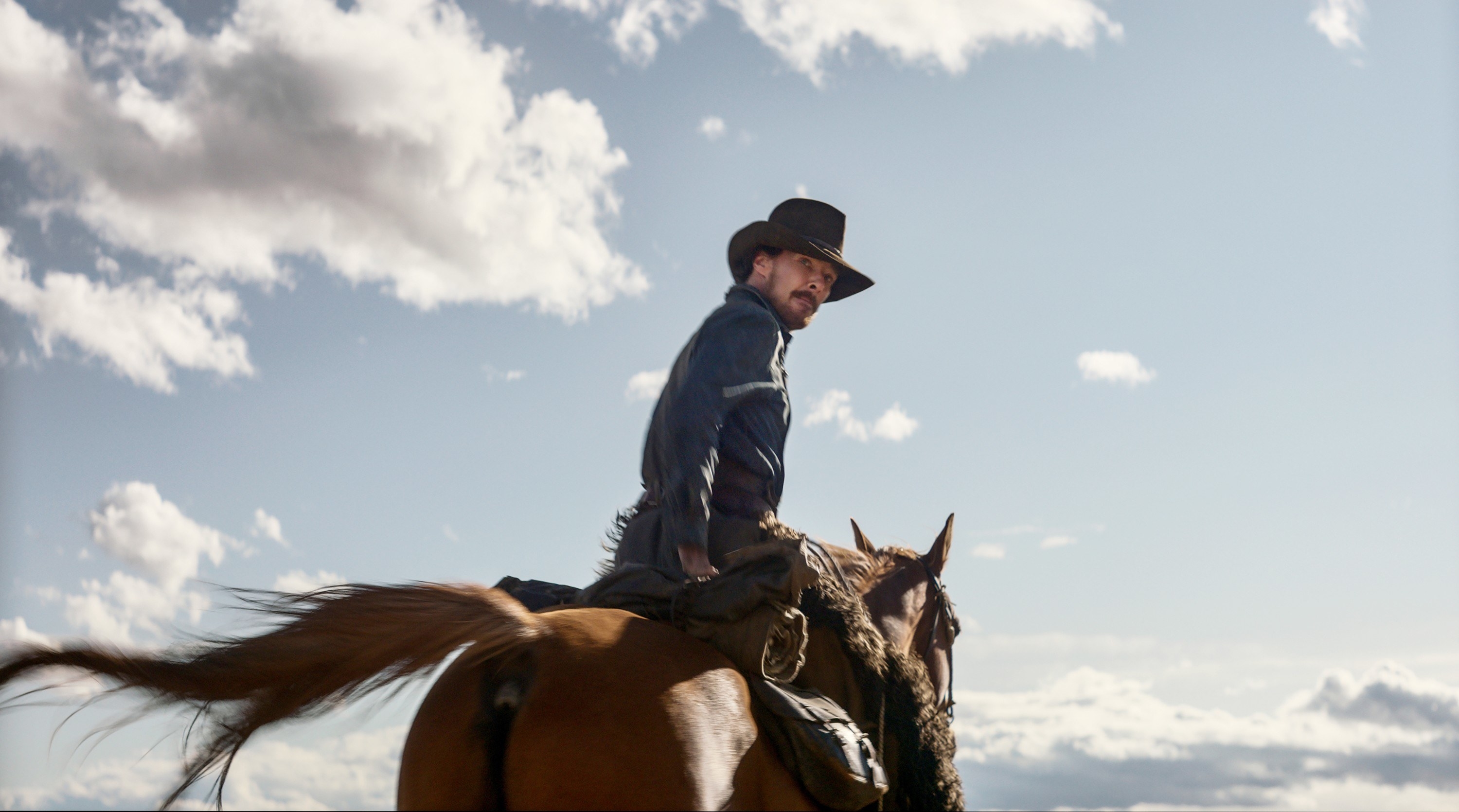
The Power of the Dog
In The Power of the Dog, Jane Campion’s first feature since 2009’s Bright Star, two very different brothers come to blows about the best way to run their family’s ranch — and their lives — in 1920s Montana. Phil (Benedict Cumberbatch) is greatly displeased when, during a cattle drive, his brother George (Jesse Plemons) becomes smitten with a widowed inn owner named Rose (Kirsten Dunst). She’s the mother of a sweet, gangly, effeminate young man, Peter (the extraordinary Kodi Smit-McPhee), and when she and George marry, Phil makes it his mission to bully and unsettle his new family members: Rose, because he thinks she’s after George’s money, and Peter because of his lisp and gentle ways.
This is a gorgeous, smoldering film with an all-star ensemble cast, anchored by Cumberbatch playing against type as the towering and quietly terrifying Phil. A haunting score by Radiohead’s Jonny Greenwood leads the audience through the awesome tableaus of the American West (New Zealand, technically) and drip-feeds us with a mounting sense of isolation and dread. It’s a slow build, and for most of the time, I had no idea where this was all heading — which only made its shocking but well-earned ending all the more gratifying. —Shannon Keating
Where to watch: Netflix
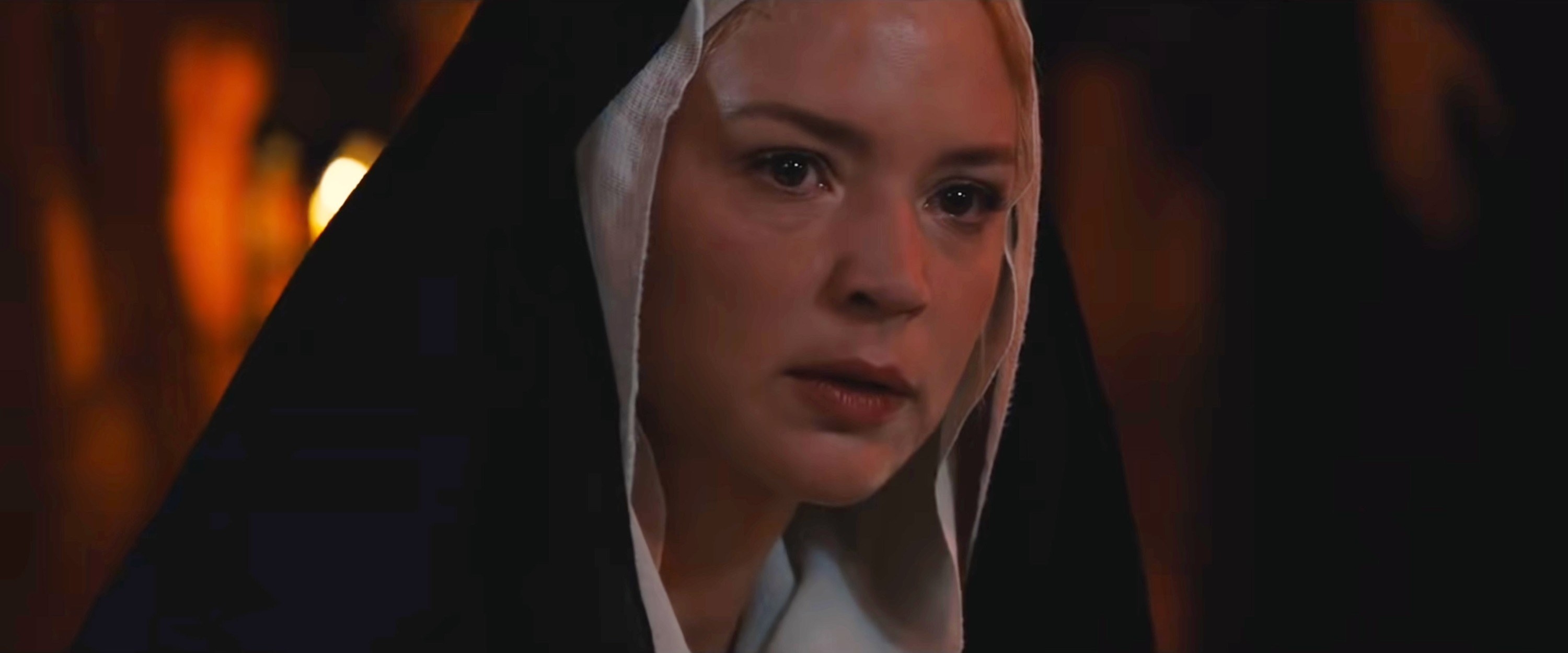
Benedetta
I knew that a film about lesbian nuns from the director who brought us gloriously unhinged classics like 1995’s Showgirls would be right up my alley, but I still wasn’t prepared for just how much I’d enjoy Paul Verhoeven’s rollicking new nunsploitation flick, Benedetta.
Virginie Efira, the absolutely stunning, César-winning Belgian actor, plays the title character, who arrives at an Italian convent as a young girl and grows up to believe — or so she’ll have us think — that she’s been granted strange, grand visions from heaven. Some of the convent leadership are pleased that talk of miracles will bring more fortune and fame to the abbey, but others aren’t convinced that Benedetta’s telling the whole truth about what she sees.
Meanwhile, a new nun named Bartolomea (Daphné Patakia) begins to distract Benedetta from her sexy dreams of Jesus through seductions of her own. The women begin an illicit affair, which involves, delightfully, a small statue of the Virgin Mary repurposed as a 17th-century dildo. They’re threatened with discovery as the plague draws ever nearer to the convent’s walls. Will Benedetta’s personal relationship with God spare their Tuscan town from mass death, or will her forbidden sapphism be both her and the village’s demise? You’re going to want to find out — trust me. —Shannon Keating
Where to watch: In theaters now
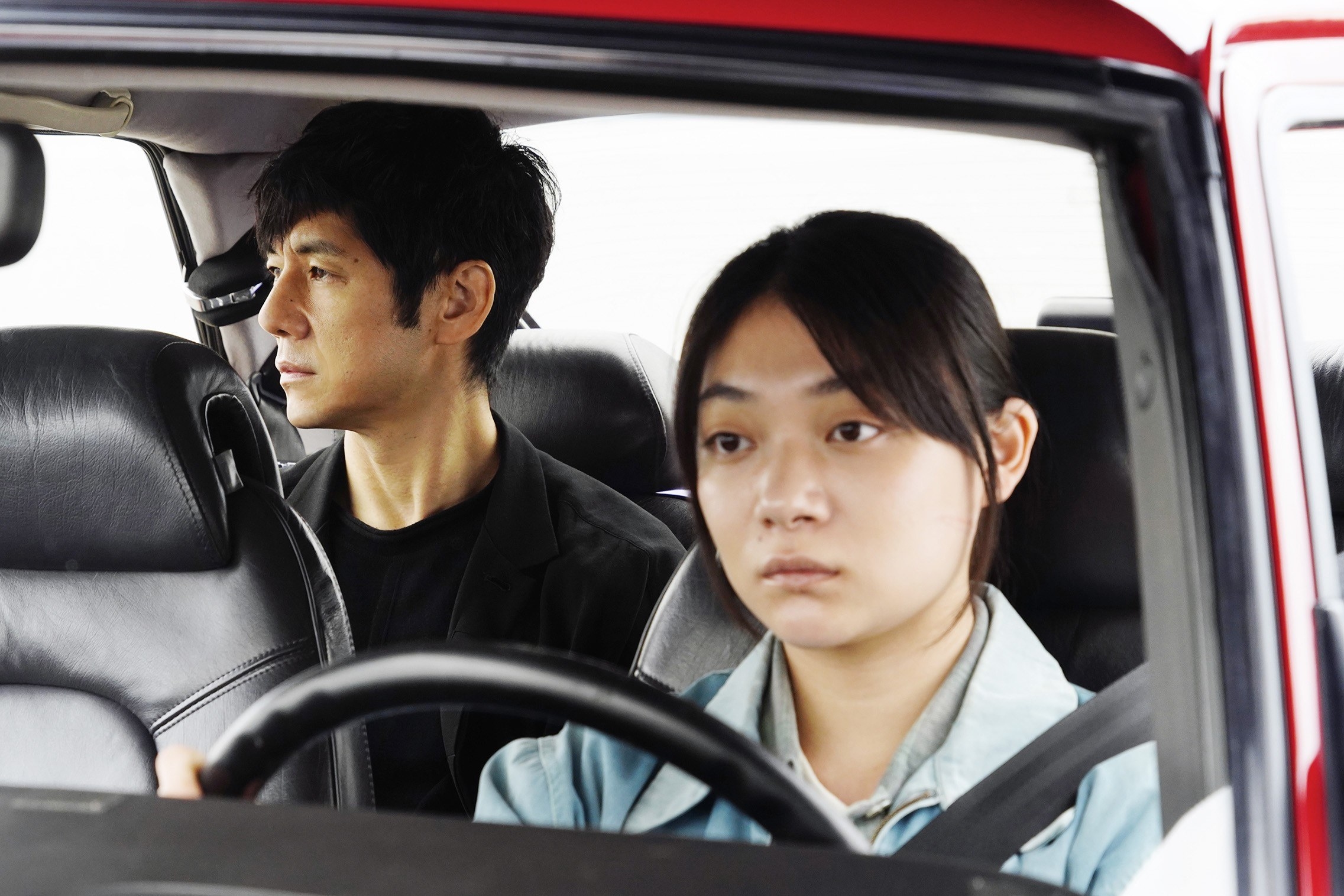
Drive My Car
Ryusuke Hamaguchi’s Drive My Car has already landed plenty of awards (mostly the kind with “best international” attached) and at least one major American laurel (it’s on Barack Obama’s yearly favorite movies list). It has also inspired a healthy number of adoring online jokes from cinephiles, which is a little surprising given it’s a Japanese movie with a runtime of almost three hours about death, loss, and [glances at notes] the plays of Anton Chekhov.
Yet there’s no mystery about its appeal. Languorous like life itself, the film is split into two parts. The first introduces the gentle rhythms of theater actor and director Yusuke Kafuku’s existence. Yusuke seems satisfied: His creative output is distinctive and well-received, and he shares a loving relationship with his wife. But returning home one day, he discovers with a shock that his world stands on shaky ground, and shortly afterward, his wife dies unexpectedly.
Two years later, Yusuke is invited to direct Uncle Vanya for a festival in Hiroshima. After a former director’s accident, the festival won’t allow Yusuke to drive to work, instead hiring a laconic young woman named Misaki as his chauffeur. This is just one of the jarring disruptions to his stasis; another is a young actor whose presence reminds him of what he’s lost. With the status quo so disturbed, Yusuke’s grief turns from a quiet anchor into dead weight.
Drive My Car shows people devastated by loss, allowing time to ripen those wounds and distort their understanding of love and purpose. For these characters, avoiding suffering has been a necessity; it’s enabled them to keep going, but at a cost. Dealing with this kind of loss requires the deepest bravery; Drive My Car is a film that bears witness to the grief process, one of the most common and transformative things we ever face. —Estelle Tang
Where to watch: In theaters now
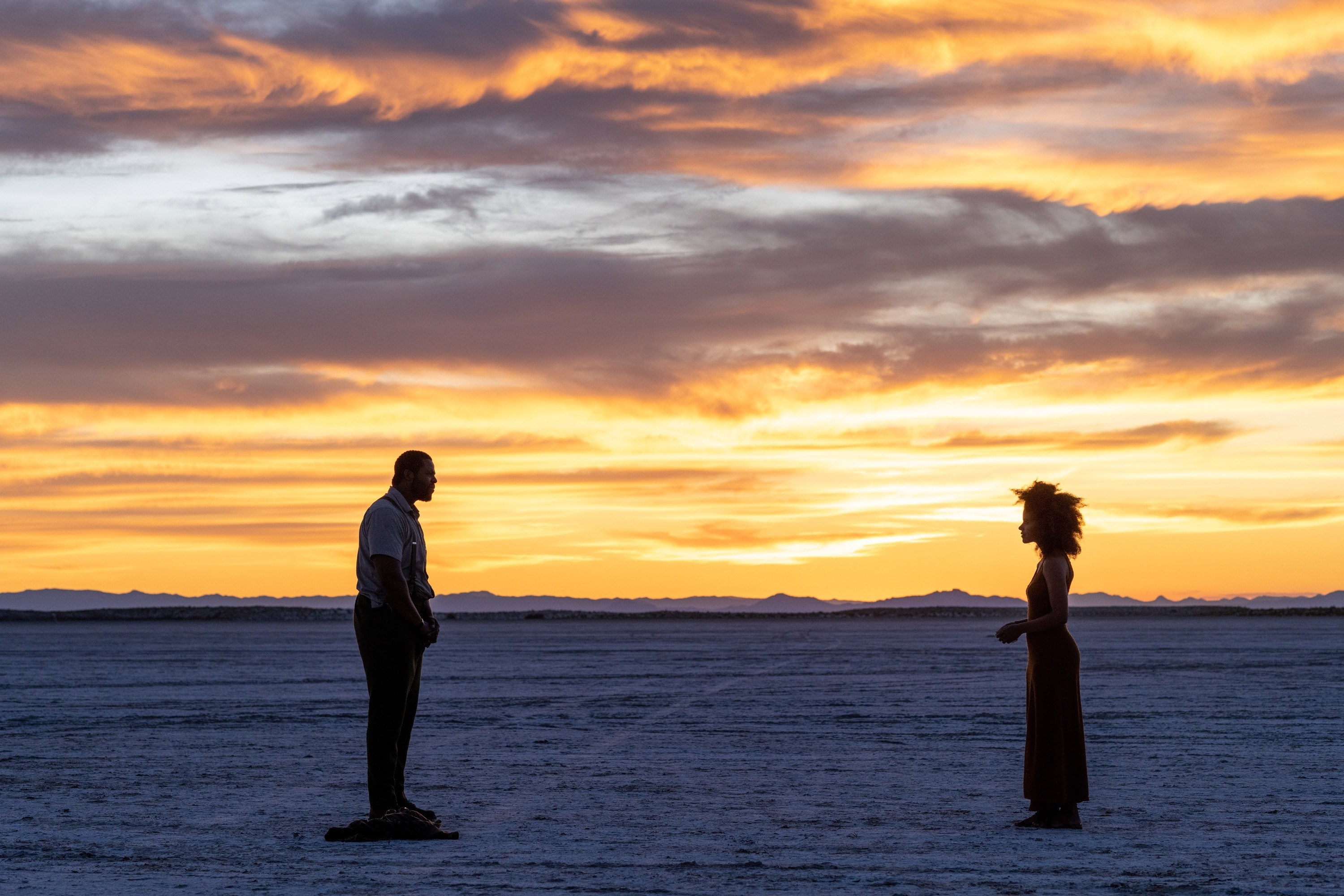
Nine Days
What makes a life worth living? How do you decide if a life is well-lived? These are the central questions behind Nine Days, the feature debut from director Edson Oda. I saw it in August, and it’s been rattling around my brain ever since. Nine Days follows Will (Winston Duke) as he goes about his job: He is an arbiter, tasked with the responsibility of interviewing souls and deciding which will get the opportunity to go to earth and inhabit a human body.
While the premise is supernatural, the mechanics of Nine Days are rooted in the triumphs and traumas of humanity. Will is forced to confront what he values about life as he cycles through the candidates for the job. Should he select the soul least likely to suffer? The one most likely to withstand the brutality of existence? Or the soul most oriented to softness and fragility? Will wrestles with these questions as he tries to process a tragic loss in his life.
What makes Nine Days work is its ability to resist descending into a full-blown philosophy lesson. Instead, this film breathes and creates space for these questions while letting the characters inhabit their own tragedies. There’s a lot of restraint here, which makes more room for the film’s striking emotionality. In addition to a stunning performance from Zazie Beetz, Nine Days also features Benedict Wong, Tony Hale, and Bill Skarsgård. —Elamin Abdelmahmoud
Where to watch: Amazon Prime
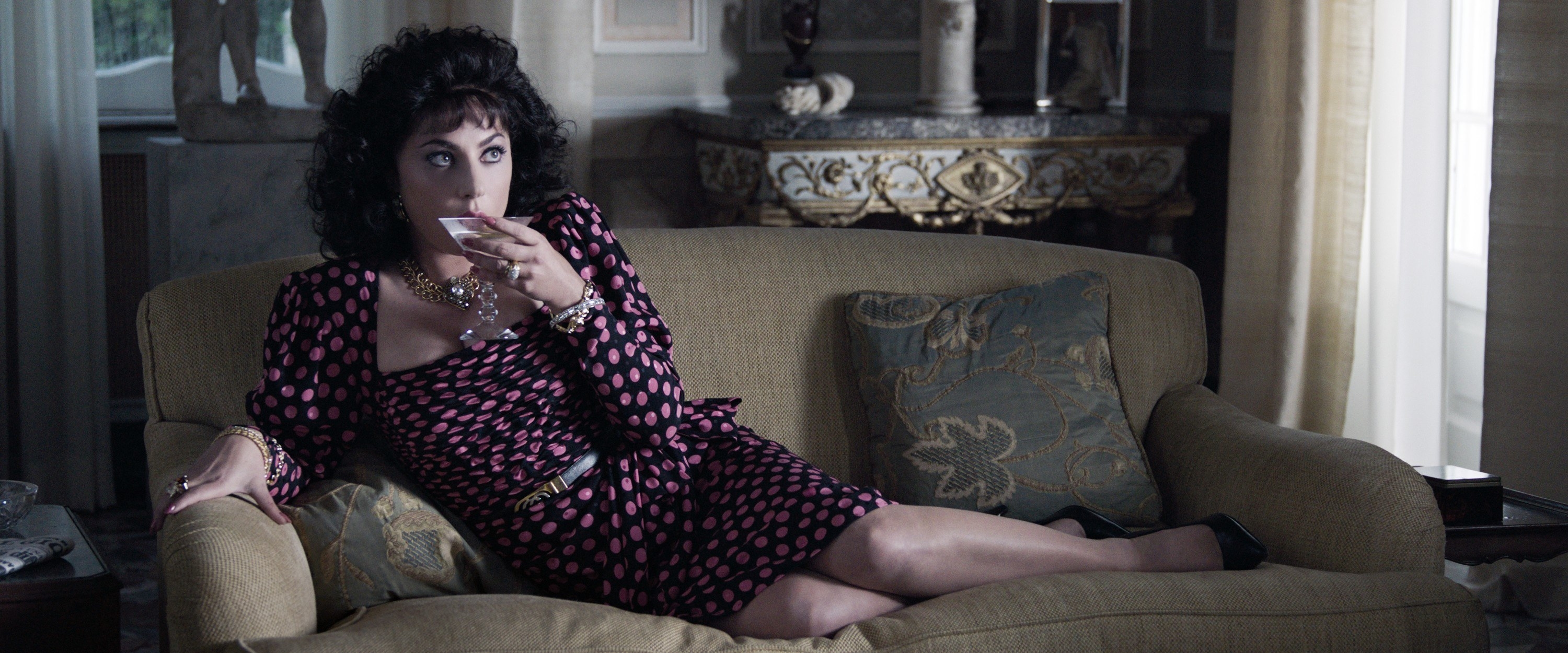
House of Gucci
Listen, I know. I know a lot of great movies came out this year, like the one about the adult woman who spends way too much time with a teenage boy in the ’70s or the one about Princess Diana if everyone did ketamine. I know! I get it! Movies are art! I do not really like art, I’ve recently decided; suffice to say the pandemic (and being alive through it) has given my brain a very soft, almost gummy worm–like quality, and as such, I cannot tolerate any movies that require me to think. I’m sure The Green Knight is very good, but the fact that I’m not typing out these sentences as “me like moobies, moobies fun for no thinky” is really a feat of personal strength.
You know when I didn’t have to think? Throughout the entire 158 minutes of House of Gucci. The reviews are largely true: The film’s pacing is so chaotic you barely feel time pass at all, it’s an extended fashion show for the Gucci catalog (and, I guess, whatever suede couch Jared Leto is cosplaying as), and Lady Gaga is the only redeeming quality of the whole movie. Why was everyone so hard on her Italian accent when this movie features Leto yelling “Boof!”
I’m not saying House of Gucci is “good,” but I am saying that it made me and my friend laugh so hard in the theater that we had to shove our masks into our mouths so that we wouldn’t get kicked out. It is an eminently watchable movie that drifts on by with a few moments of good acting, but even more moments of absolute camp. There’s one really boring movie in House of Gucci, about the business of a struggling fashion house that everyone knows isn’t struggling anymore. But then there’s a far better narrative inside, about Gaga’s character, a jilted wife who builds her husband (Adam Driver) and his business up, who is cast aside when he’s no longer compelled by her, and then driven to plotting his murder. The tedious part gives you time to look at Instagram and the compelling parts will distract you from the crushing reality of your life. Isn’t that all we really want from the movies? Brain soft, Gucci soothing, and that’s all she wrote. —Scaachi Koul
Where to watch: In theaters now







